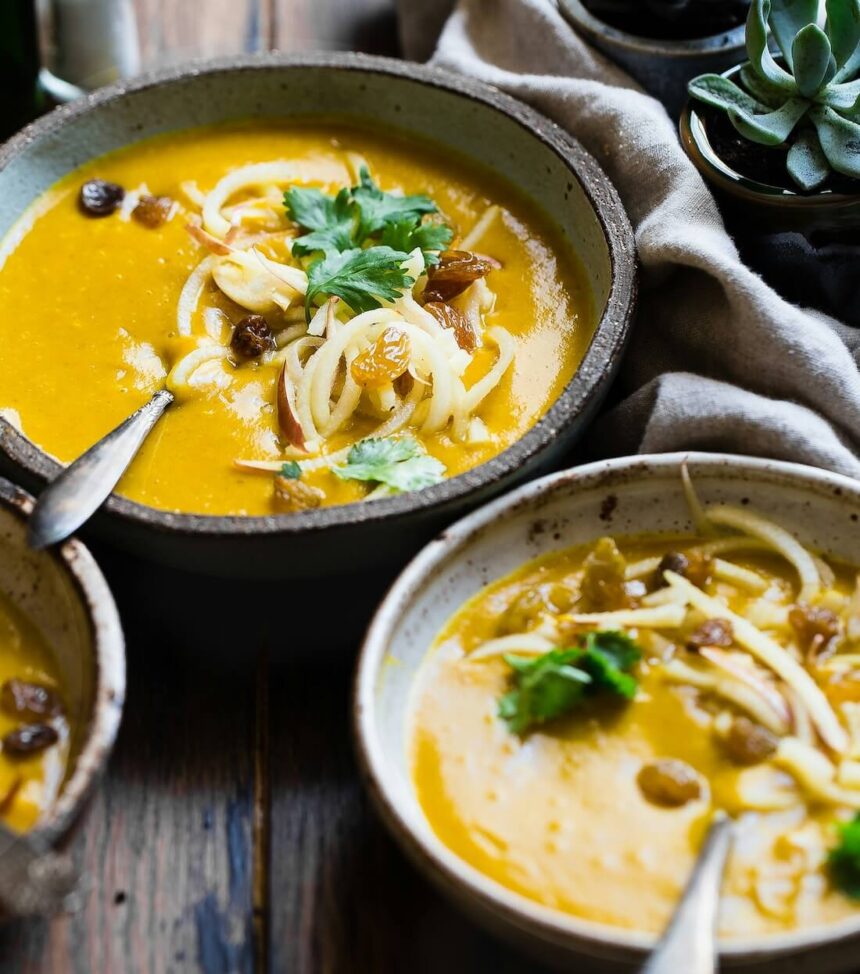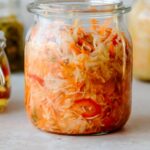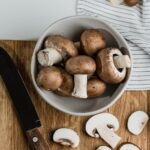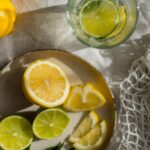Histamine has a huge role in our bodies, being involved in our immune, but for about 1% of the population, histamine equals major troubles due to histamine intolerance.
However, a low-histamine diet has been shown to bring good results for people with intolerance. And what’s the best, it’s possible to live a completely normal and healthy life by opting for a low-histamine diet.
In this quick guide, we’ll give you a breakdown of what histamine entails and, more importantly, what foods to avoid and consume to keep you healthy even if you have histamine intolerance.
What Is Histamine?
Histamine is a chemical that is involved in as many as 23 different physiological functions in our bodies, making it a crucial component of our health. As a neurotransmitter, it sends information from your body to your brain and works primarily to keep your immune system, digestion, and central nervous system in order.
To put it more simply, histamines are crucial components in your body’s defense system, acting like guard dogs who push out allergens from your body. To get rid of allergens, histamines can cause different reactions like making you sneeze, itch, give you a runny nose, or watery eyes.
When you encounter something that triggers your allergies, your immune system reacts by sending a signal to mast cells in your body. That signal is simple: to release histamines, a.k.a your body’s trusty guard dogs. Histamines then run into action, causing inflammation in the area that’s affected by the allergen.
That’s when all of the allergic reactions kick in and when you would usually reach for an antihistamine that would make you feel better after your body’s immune system started protecting you from those allergens.
Histamine also takes part in digestion, helping to break down food by triggering the release of stomach acid.
Histamine Intolerance Causes and Symptoms
Sometimes, though, you might have a buildup of histamine in your body, a.k.a histamine intolerance. Contrary to other intolerance types, histamine intolerance doesn’t mean your body is sensitive to histamine but it simply means there’s too much of it in your body.
Histamine is naturally produced in your body with the enzyme diamine oxidase (DAO). As you consume histamine from food, DAO is the one that takes care of breaking down the histamine.
However, it’s possible to become deficient in DAO, meaning you might develop intolerance towards histamine since there’s a lot more of it in your body than there should be.
Where does that DAO deficiency come from, though? There are several reasons to blame:
- some medications might interfere with DAO’s production
- some gastrointestinal disorders like leaky gut syndrome might affect it
- you might have consumed too many histamine-rich foods that have interfered in DAO’s normal function
- you might have consumed foods that block DAO or trigger too much histamine to be released
- alcohol consumption
- vitamin B-6, vitamin C, copper, or zinc deficiency
- temperature extremes
- bacterial overgrowth.
Histamine intolerance is rather tough to diagnose since many symptoms match with food allergies or other conditions, but some of the most common symptoms include:
- headaches
- hypertension
- issues with falling asleep
- anxiety
- nausea and vomiting
- abdominal cramps
- difficulties breathing, nasal congestion
- abnormal menstrual cycle
- hives
- fatigue
- high blood pressure
- irregular heart rate.
Low-Histamine Foods That May Help
Most foods contain some level of histamine, so it’s almost impossible to avoid histamine intake completely.
However, research has shown that restricting histamine intake may help handle the situation. By opting for a low-histamine diet, it’s entirely possible to decrease the histamine intolerance symptoms and live a completely normal, healthy life, especially if the issue has arisen due to high histamine intake.
While all foods contain some amount of histamine, some foods are especially rich in histamine, some foods might release more histamine (though this is more of a theory as it hasn’t been proven scientifically yet), and some foods might interfere in DAO production.
A good rule of thumb is to avoid foods that have aged or have been fermented since the more the food ages, the more histamine it contains. Fresh foods have the lowest histamine levels, so if in doubt, it’s best to just opt for fresh items.
High Histamine Foods:
- fermented dairy products (especially aged cheese), yogurt, kefir, sour cream
- sauerkraut and kimchi (and other fermented vegetables)
- pickles
- vinegar
- fermented or cured meats
- all kinds of alcohol
- fermented soy products
- tomatoes (including ketchup)
- eggplant
- spinach
- avocado
- frozen, salted, or canned fish
- legumes (like lentils and chickpeas)
- chocolate and cocoa
- green tea
- peanuts
- dried fruit
Foods That May Act as Histamine Liberators:
- pineapples
- all kinds of citrus fruit
- bananas
- strawberries
- wheat germs
- cherries
- papaya
- beans
- seasonings and spices like anise, cinnamon, cloves, chili powder, curry powder, nutmeg
- egg whites
- food additives like colorants, flavorings, and preservatives (especially sulfites and benzoates)
Foods That Might Interfere With Dao:
- alcohol
- energy drinks
- tea (both green and black)
- raw egg whites
Though this list might seem depressingly limiting, histamine intolerance doesn’t mean you need to cut out all foods that are rich in histamine.
People have different sensitivity levels, and what might work for some might not work for others. The main goal is to cut down the histamine consumption, but cutting it completely out is not necessary.
Low Histamine Foods:
- freshly caught fish
- fresh meat or poultry
- egg yolks
- gluten-free grains like quinoa and rice
- olive oil and coconut oil
- butter and cream cheese
- leafy greens, except spinach
- fresh milk products
- fresh vegetables, except the ones listed above
- fresh fruits like mango, pear, watermelon, apple, kiwi (most fresh fruits and berries work, except the ones mentioned above).
Is Low Histamine Diet for Everyone?
Low-histamine diet can actually be a healthy choice even for those who don’t particularly suffer from histamine intolerance.
However, a healthy person doesn’t really need to avoid foods that are rich in histamine since dietary histamine will be broken down in the body without any negative effects.
Therefore, a person with no histamine intolerance can consume foods high in histamine completely trouble-free, though as with any substance, it’s best to keep the consumption moderate.
Histamine Intolerance Treatment
Histamine intolerance is a complicated condition since there’s no specific treatment for it yet. However, dietary changes are one of the key components to reducing the symptoms and feeling like your old self again. Most doctors also recommend opting for a low-histamine diet for at least 1 to 3 months, after which the symptoms should start decreasing.
Since the root cause for histamine intolerance can vary, so does the possible treatment. A study showed, though, that taking a DAO supplement twice a day helped to reduce symptoms as well, therefore taking a DAO supplement together with changing your diet might fix the issue.
If the intolerance was caused by a specific medicine, avoiding that medicine might be the answer. In addition, taking antihistamine medication might work as well.
Before deciding to take any supplements or make changes in your diet, consult with a doctor who can guide you toward the best solution for your health. If you struggle with histamine intolerance, a low-histamine diet might be the key to improving your health.








